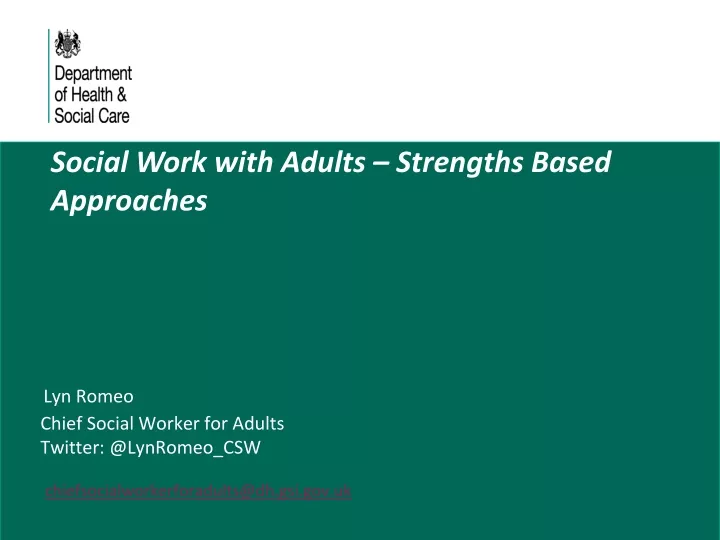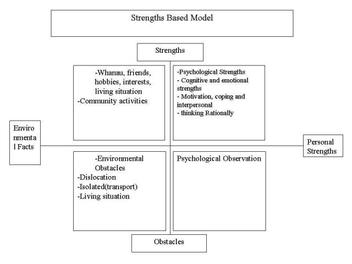

By putting them and their well-being at the centre of social work we tend to see more cooperation and greater long-term success because we’re focusing on positive aspects. It is all focused around outcomes and the person, not the services that they may use.Įach individual who is the beneficiary of the broader social work practice is different. This approach then looks to identify these strengths to help lift them out of the situation they are in.

The whole approach has a focus on what is strong about the person rather than what is wrong with them. A holistic and multi-faceted approach, it is about working with the individual and looks to improve on their strengths to promote their wellbeing. Sometimes referred to as an asset-based approach, a strength-based approach in social work focuses on the personal strengths of the person at the centre of the support services, as opposed to their weaknesses. What Is A Strength-Based Approach In Social Work? And if you do to and are a social worker based in the UK, in places such as Liverpool, Manchester, Gloucestershire, Cumbria or the surrounding areas of The Wirral, Stockport or Salford, have at least a year’s experience in social work and are looking for a new role, then be sure to get in touch with Portman Recruitment today. We thoroughly believe in the strength-based approach at Portman Recruitment. In today’s blog, we’ll be examining what a strength-based approach is and how it can benefit you as a social worker.

This is where a strength-based approach to social work comes in. While these people might be vulnerable and have weaknesses, they are by no means without positive traits. From young people with mental health concerns and those with incredibly damaging life experiences to family members who have been the victims of harm or substance abuse, it can be hard to imagine the pain and suffering that many people go through and have to endure. Study designs were varied and included a number of qualitative case studies but very few quantitative or RCT based studies.Implications: This review has brought evidence together, extended understanding about strengths-based approaches in social work and social care for adults and offered us a platform upon which to develop models of evaluation.Social work encompasses all sorts of disciplines and impacts the lives of a variety of people. Specific research needs to be done to evaluate the precise nature of strengths-based approaches in social work and social care, their impact on users and carers quality of life and well being and the outcomes achieved.Limitations: The review may be limited by the lack of evidence in a relatively under-researched area of practice. A total of 72 items were included.Findings: Strengths-based approaches are being embraced by policy makers and practitioners but questions remain about: their definition (how they are distinct from other approaches, and how they should be conceptualised) their effectiveness and feasibility (including their intersection with local authority eligibility thresholds) and how they should/can be evaluated. Its primary aim was to explore the nature and extent of evidence in relationship to strengths-based approaches in social work and social care for adults also how these approaches impact on practice and on outcomes for social care service users and their families.Methods: A database search was conducted for the period 2009 to 2019 to identify peer-reviewed and grey literature publications on the use of strengths (or asset) based approaches in social work and social care. Although a number of strengths-based models have been developed it is not known whether and how they work, or which model works best for whom and in what circumstances.Objectives: A scoping review of evidence was conducted between July and September 2019. These new models of care promote the deployment of ‘strengths’ including personal, social and community resources to empower individuals to achieve their desired outcomes.

Context: There is substantial policy support for strengths-based approaches to social work and social care.


 0 kommentar(er)
0 kommentar(er)
